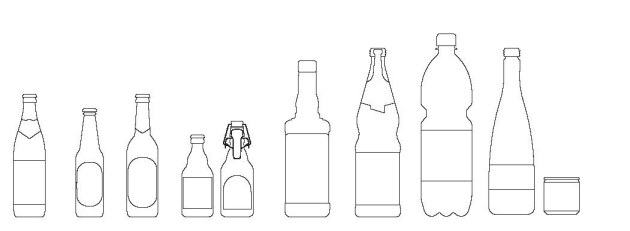Filling and packaging systems company KHS has launched a compact labelling machine for the food and beverage industry.
The 'little brother' of the successful Innoket Neo, the Innoket Roland 40 has the capacity to produce 2500 to 25,000 containers per hour.
It can be fitted with various labelling stations and is easy to use, according to KHS labelling product manager Cornelius Adolf.
“The table machine is specially geared towards lines with a low output,” he said.
“It is of interest to craft breweries, but also manufacturers of canned food, sauces or dressings.”
In its standard version, the Innoket Roland 40 comes with two cold glue stations, which allows shoulder and neck labels to be applied at two levels by the first station, for instance, with the second station affixing back labels to the bottles.
Alternatively, self-adhesive stations, a combination of cold glue and self-adhesive technology, and hot melt labelling processes can be used.
The KHS development also provides opportunities for extension to cater for individual labelling tasks.
It is possible, for example, to equip the Innoket Roland 40 with the KHS VarioDrive electronic bottle plate control system.
Other options include mechanical alignment by side notch in the infeed star, and the fitting of travelling applicators, the latter used for cap or lid labels.
U-shaped labels – as tamper-evident seals for twist-off caps, for instance – can also be labelled and rolled on.







